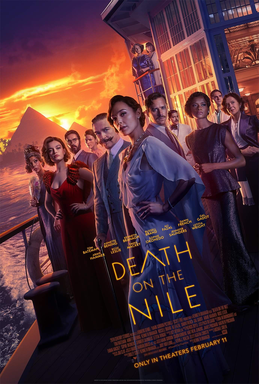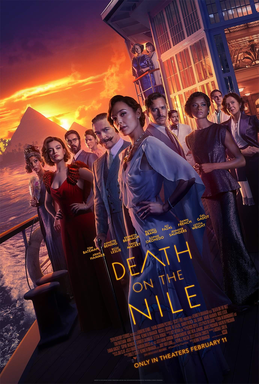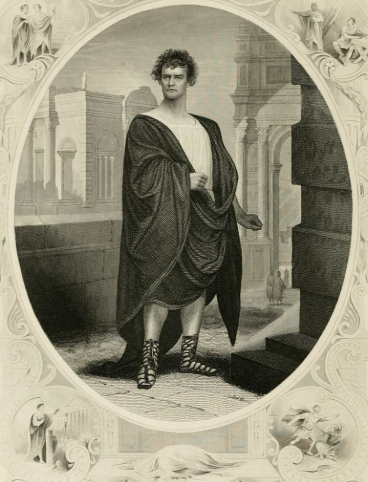“Death on the Nile”: Revival of a Classic Mystery
Eren Levine ʼ24 analyzes the new cinematic remake of Agatha Christie’s “Death on the Nile.” The new adaptation is a fresh twist on the story last adapted in 1978, incorporating the political circumstances of 2022.


As an avid Agatha Christie fan, I was very excited when I heard about the new “Death on the Nile” movie, which premiered on Feb. 11. Having read the novel and watched the 1978 film adaptation — and loving them both — I knew I would either be very pleased or very disappointed with what I found in the new version. I had reason to be hopeful, having enjoyed the 2017 remake of Christie novel “Murder on the Orient Express,” which had the same director and same actor (Kenneth Branagh) playing Hercule Poirot as the new Christie adaptation. Further, the cast of “Death on the Nile” is filled with famous actors whose work I often enjoy, such as Gal Gadot, Emma Mackey, and Russell Brand. While the overarching plot of the movie remained true to the original novel — a murder mystery aboard a glamorous river cruise — many details were changed and added: some improved the story, others felt unnecessary, and a select few seriously detracted from the authenticity of the story.
In terms of production, the movie was captivating and visually pleasing. The costumes and sets were beautiful, the acting was top-tier, and there was no point at which I felt the plot was moving too slowly. The suspense that builds throughout the movie was intense, and even though I knew how the story would end, I was still on the edge of my seat at the height of the drama. There were characters with whom I empathized, such as Rosalie Otterbourne (Letitia Wright) and Bouc (Tom Bateman), and characters I was wary of, such as Bouc’s mother (Annette Benning) and Dr. Windlesham (Russell Brand). I think these factors are crucial to the enjoyment of a mystery. I wanted Poirot to succeed in finding the murderer, and I was upset each time an additional character was killed. All in all, I think the movie was a success and would recommend it to anyone who is a fan of Agatha Christie or loves mysteries.
The biggest difference in the plot of the new movie compared to the original was the introduction of Bouc, Poirot’s right-hand man. (Poirot has a different friend in the novel.) Bouc was a character in the aforementioned “Murder on the Orient Express” movie, and the director wanted to include Tom Bateman’s role in this story as well. Bouc’s character arc is nuanced. We see Bouc defend his romance with Rosalie Otterbourne after his mother expresses disapproval. However, his connection with Rosalie also leads him to make some questionable decisions with negative repercussions. Because Bouc was one of my favorite characters, and his relationship with Poirot was so well-depicted, I found the addition of this character to be a positive change. However, without spoiling the film, I must say that Bouc’s ending is not exactly what I would have hoped for.
Salome Otterbourne (Sophie Okonedo) and her niece, Rosalie, also had different roles in the adaptation than in the original story. In particular, the director chose to make these characters Black, unlike in the original. Salome and Rosalie discuss difficulties they face because of their race, adding a degree of relevance and gravity to the story, and making a fairly straightforward murder mystery into a more meaningful and complex narrative. Another minor change was that Marie Van Schuyler (Jennifer Saunders) and Mrs. Bowers (Dawn French), a nurse and employer duo, turn out to be in a romantic relationship. While this didn’t detract from the plot at all, I also didn’t think it added much to the story. It is always important to include diverse storylines and characters, but there was no additional value added to the movie beyond this. Unlike with the Otterbournes, the movie neither explored these characters’ new identities nor deepened the significance of including the changes.
The most significant difference from the original — and the one I took most issue with — was that this version included a deep look into Poirot’s past, including a romance from years prior. Hercule Poirot is an iconic character, and I have always loved reading his stories and watching Peter Ustinov portray him in the original film adaptations. One of the reasons Poirot is so likable, however, is that he is a brilliant detective who manages to avoid drama and impress people wherever he goes. With the addition of a sad backstory, this loveable and sometimes comedic character became someone whom I pitied and felt bad for throughout the story. I understand that this change was supposed to show character development and add depth to his character, but personally, I prefer Poirot the way he is usually portrayed.
I very much enjoyed getting to see a new adaptation of a story I love so much, and for the most part, I had very few complaints about this version. If it were up to me, however, I would have kept Poirot’s character mysterious and not forced a romance upon him. Other than that, I believe the changes made to the original were acceptable, if not positive. At the end of “Murder on the Orient Express,” there was a scene hinting that another movie would be made. While this was not the case in “Death on the Nile,” I would be very excited to watch another Kenneth Branagh Poirot mystery.




Comments ()